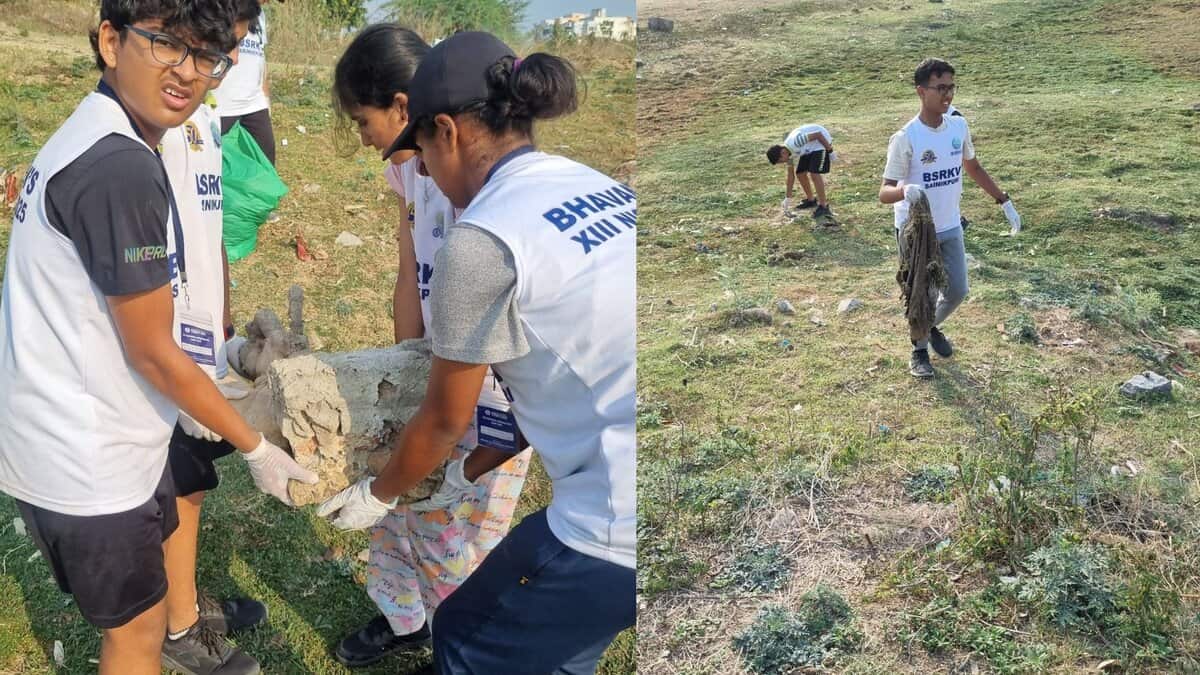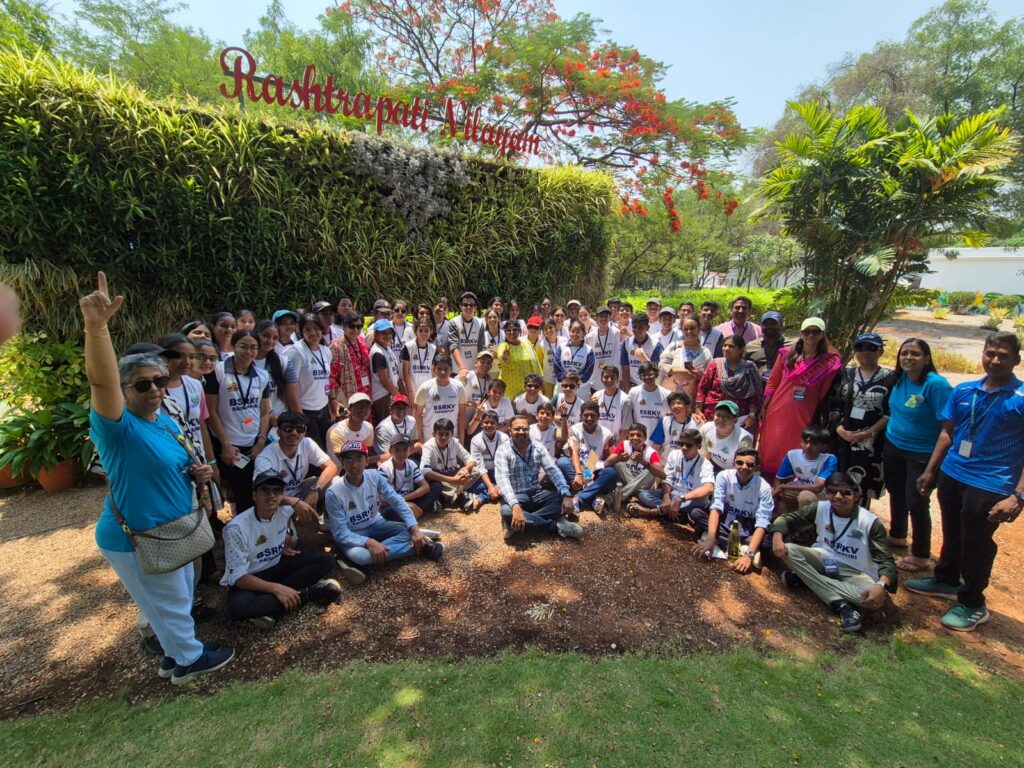
Hyderabad: Not many know that a glittering lake in Secunderabad had featured in Telugu film classics like “Dana Veera Sura Karna” and “Utsav.” The Kapra Cheruvu, which was once spread across 113 acres, has now been reduced to 70 acres, battling to regain its lost glory. Thanks to the relentless efforts of certain organisations and citizen volunteers, the lake is gradually reviving.
In a unique collaboration, the Kapra Lake Revival Group (KLRG), a Secunderabad-based NGO, and Bhavans Sri Ramakrishna Vidyalaya (BSRKV), Sainikpuri, hosted a full-day sustainability program on April 29, 2025, starting with a mega cleanup drive at the scenic Kapra Lake.
The event was part of the All India Bhavan’s Meet being held from April 26 to 30, which saw the attendance of over 400 students from across India to the Sainikpuri campus for a vibrant, hands-on environmental experience.
Morning run to the lake, discussions on lake conservation
The day kicked off with a morning run to the lake, followed by discussions on lake conservation on the steps of the colourful immersion pond (Bathukamma ghat).
The clean-up drive saw more than 200 volunteers, including students, teachers, birders, and locals, collecting 205 kg of garbage from the lake’s shore.
KLRG trustee and Bhavan’s school alumni Ajita Maru said, “ KLRG has been working hard to bring the community together and save the Kapra Lake, which has now dried up to 20% of its original capacity.”
According to Manognya Reddy, a former employee of Oracle Corporation, who oversees the corporate-level processes in KLRG’s work, the Kapra lake has been reduced from 113 to around 70 acres over the years.
She told Siasat.com that during the Covid-19 pandemic, an effort was made by the civic authorities to empty the entire lake, as it was full of sewage water that had entered through various sources.
The authorities had laid pipelines to divert the sewage water away from the lake. However, due to the inflow channels being blocked due to encroachments, the lake has not been able to be filled to its full capacity despite good rains witnessed over the past few years.
“Kapra Lake is our neighbourhood water body. Having seen it full, the dream is to keep it alive,” she said.
“Declared both a wetland and an important ‘Bird Area,’ Kapra lake holds the promise of becoming a bird sanctuary once more. Ongoing restoration efforts include the reopening of storm drains, phyto-remediation, bio-remediation, and community-led composting initiatives,” she added.
Other activities by the citizens’ collective
Students and teachers from Bhavans schools across India presented innovative sustainability projects at the event.
A teacher from Kodaikanal shared a successful public-private lake restoration initiative in Calicut.
Shreyas, from Ernakulam, discussed converting plastic bottles into pellets for soft toys, while a student from Raipur presented her project on transforming sewage into potable water using an organic ultra-filtration method.
As part of their educational tour, students also visited the Rashtrapati Nilayam to explore heritage-based water conservation techniques, including traditional stepwells and herbal gardens.

Eco workshops
The event also featured eco-workshops where banana peels from breakfast were used for composting and bio-enzyme making.
Meena Ravindran, a KLRG trustee, highlighted the immediate need to save natural resources like water and lakes, and how there is an urgent need for students to come forward to take up initiatives or participate in mini sustainability projects.
Vinita Suresh, principal of BSRKV Sainikpuri emphasised, “I am happy that our children got to experience sustainable practices first-hand, and got to plunge deep into mindful living. I think exposure to community action like lake clean-up activities will go a long way in moulding these young minds”.
“Events like these offer students practical ways to contribute to society. I now plan to start an Eco Club in my school,” said Rohan Muppidi, director of Iris Florets, Yapral.
Essay writing, skits, panel discussion
The program concluded with student-led essay writing, skits, and a panel discussion that showcased the grassroots ideas on sustainability.

